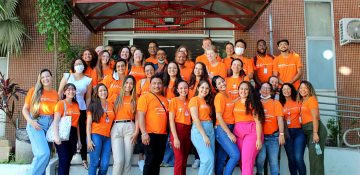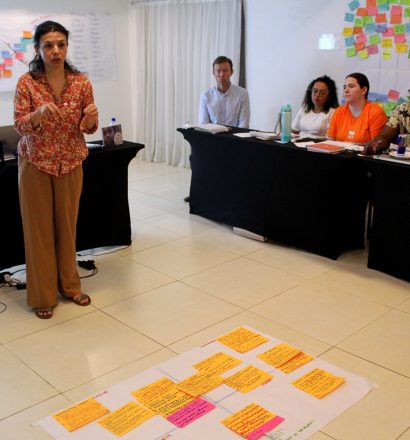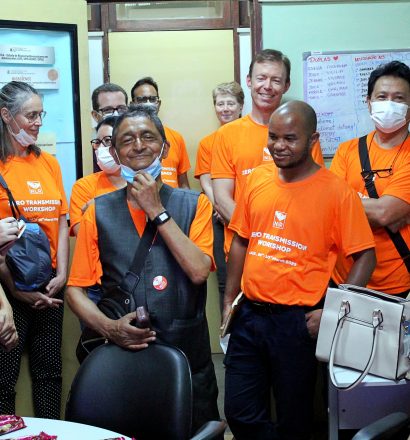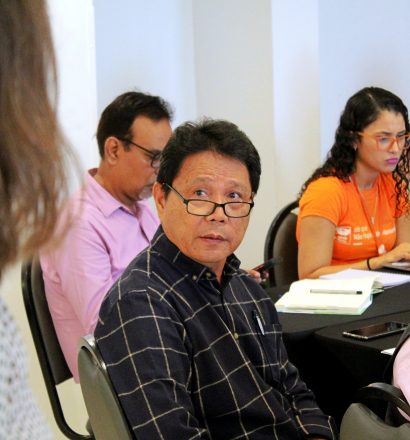NLR staff gathers in Brazil for a workshop on Zero Transmission
The meeting was attended by experts from all alliance members (six countries), who sought to strengthen projects aimed at controlling the transmission of the disease at global, national and local levels

From the 6th to the 10th of March, NHR Brasil facilitated a workshop focused on Zero Transmission. NLR’s key focus area in the fight against leprosy. The activities enjoyed the participation of partners from NLR offices in India, Indonesia, Nepal, Mozambique, Brazil and the Netherlands.
The meeting of these countries, which together account for more than 80% of cases of the disease in the world, dove into strategies in terms of prevention, surveillance, and diagnosis to achieve the interruption of leprosy transmission. As part of the programme, participants gave presentations on the panorama of the endemic situation in their countries, dealing with the number of cases over the years as well as the challenges encountered in their working areas.
Duane Hinders, Programme Manager of the ‘Stop the transmission of leprosy’ Project (PEP++), highlighted that moments like this workshop are important for reflections aimed at the multi-year strategy of NLR in terms of analysis of projects and research that may contribute to the interruption of disease transmission, stating: “That’s why we’ve gathered here: to discuss ideas, exchange experiences, and look at what we can do and achieve in the next five years as an international alliance to fight leprosy.”
Among the main outcomes of the workshop, participants called attention to the need for greater advocacy efforts regarding NLR projects alliance-wide, including continuing to collaborate with support and technical advice to governments and other partners to strengthen leprosy control programs nationally and globally. In addition, they defended the implementation of innovations to monitor, diagnose and treat new cases of the disease.



Field visit
An important moment of the meeting was a field visit to the Basic Health Unit Osmar Vianna, located in Jangurussu, a neighborhood on the outskirts of Fortaleza. In the region, activities are carried out in the PEP++ Program, a multicenter research carried out by the NLR Alliance that aims to evaluate an improved post-exposure prophylaxis regimen for contacts of people diagnosed.
During the visit, the workshop participants were able to closely monitor the work of primary care health professionals in Brazil, as well as contact surveillance procedures and the approaches of research assistants from the PEP++ Program to families in the region.
For Nandlal Banstola, deputy-director of NLR Nepal, the experience of the workshop linked to the field visit will be useful to understand the dimension of what needs to be done to implement zero transmission programs and projects and how different realities and expertise can contribute to overcoming this challenge: “We are happy to be able to learn several strategies with Brazil. We will certainly insert many of them in our country in the future.”
Alexandre Menezes, national director of NHR Brasil, affirms the importance of holding the workshop in Brazil: “Our role is to bring relevant elements to discuss what can still be done to control transmission at a global level, especially to be taken and discussed in each country, including Brazil.” He recalls that the country has the second-highest number of leprosy cases in the world and is the first in the ranking when it comes to detection rates. Therefore, the demands that arise in meetings like this have the potential to improve methods and practices to contribute to disease control.